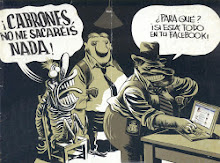Rob Cline
Sara Paretsky of Chicago is one of the most respected writers working in mysteries today. Her introduction of V.I. Warshawski in 1982’s “Indemnity Only,” was a major step forward for the portrayal of tough-as-nails female private eyes. Paretsky’s new novel, “Fallout,”
(See review here)
takes Warshawski away from her home turf in Chicago for an adventure in and around Lawrence, Kan., where Paretsky grew up and attended the University of Kansas.
In this e-interview, Paretsky discusses Warshawski’s first case and her latest case. She also considers her commitment to using her influence as a writer to serve others.
Q: I read “Wildcat,” the short story published as an e-publication ahead of the publication of “Fallout.” The story features V.I. Warshawski as a child on her first case. How long have you had the specific events of that backstory for Warshawski in your head? Was the short story something you’d been wanting to write or was it something of a marketing request from your publisher (or both)?
A: I wrote a version of “Wildcat” for a Sisters in Crime anthology 10 years ago, but I wrote the story too fast. When Morrow wanted something new to publish ahead of “Fallout,” I was glad to have the opportunity to go back and rework it. It’s about half again as long as the original, and it gave me a chance to think through the way in which V.I.’s mother actually shaped how V.I. solves problems in later life. I also loved the chance to think through why Gabriella brought those fragile wineglasses all the way from Pitigliano. Most important, in the original story, Boom-Boom (V.I.’s cousin) saves V.I., and I wanted her to save herself.
Q: “Fallout” is your first book with William Morrow. What led to the new home for you and your detective?
A: Morrow came to me with so much enthusiasm for my work that I couldn’t resist the chance to move.
Q: You take V.I. out of Chicago for the first time in this book. I know Kansas is important to you (when you were in Cedar Rapids for a reading in 2009, “Bleeding Kansas” had just come out), but why did you decide to send V.I. there?
A: I wrote a story called “Miss Bianca” for an anthology that Jeffery Deaver edited (“Ice Cold”). It was based on an episode in my father’s life. He was a cell biologist on the fringes of bio weapons work in the ’60s. His work and the episode I used for “Miss Bianca” haunted me enough that I wanted to use them in a novel. And because it was based on his life and work, I could only imagine it taking place in Kansas. The book proved to be a somewhat emotional journey into my own past and the history of race relations in the town where I grew up, so it was a very personal novel in the end.
Q: You’ve been writing about V.I. for a long time now. What are the particular challenges, in your view, of a lengthy series?
A: One of the biggest challenges, since the narrative is in the first person, is to keep a separation between my life and the detective’s life. There’s been a little bit too much bleed from my anxieties and issues into her life and work, and I’m trying to figure out ways to pull back from them.
Q: In 2015, you were awarded the Paul Engle Prize by the Iowa City UNESCO City of Literature organization, in large part due to your work to support diversity in your genre and to improve the lives of those on the margins of society. What was the spark that ignited your passion for service of this sort?
A: I think that came from multiple sources. My paternal grandparents were eastern European immigrants whose entire families were destroyed during the Holocaust and I grew up with that weight on me. It also left me with the sense that you should never sit by and do nothing when people’s lives are at stake.
My mother’s father was a small-town doctor in Illinois who would not leave his town without a doctor during the Depression, despite an offer from the Mayo Clinic (and despite the fact that most people could not pay him). He died going out on an icy day to save the life of an old man who’d fallen and needed to be carried inside. By all accounts, he was a good-natured huntin’, shootin’, fishin’ kind of guy but he took his medical responsibilities quite seriously.
Q: What are you working on next?
A: I’m in the early stages of a new V.I. novel, too early to say very much about it. My dog is overweight and is inspiring me to write a play called “Adipose Rex.”
Q: When you were in Cedar Rapids in 2009, we joked about your Cubs fandom and my Cardinals loyalty. How’d it feel to see your team win it all?
A: Two cataclysmic events happened within 10 days of each other last fall and I’m still having trouble believing that either of them is real.

























.jpeg)








0 comentaris:
Publica un comentari a l'entrada